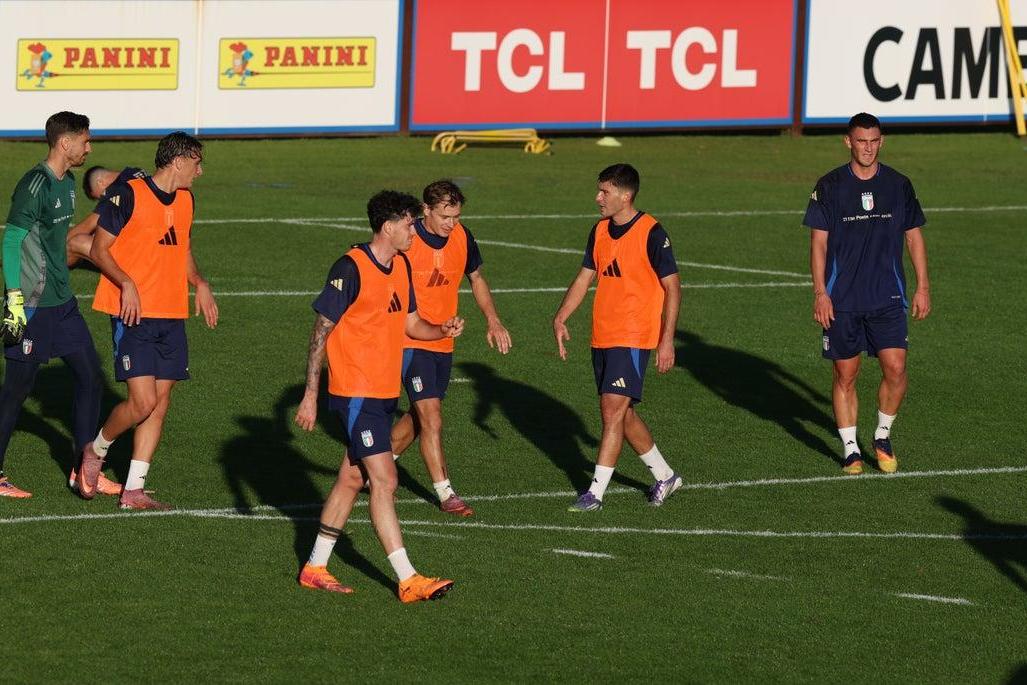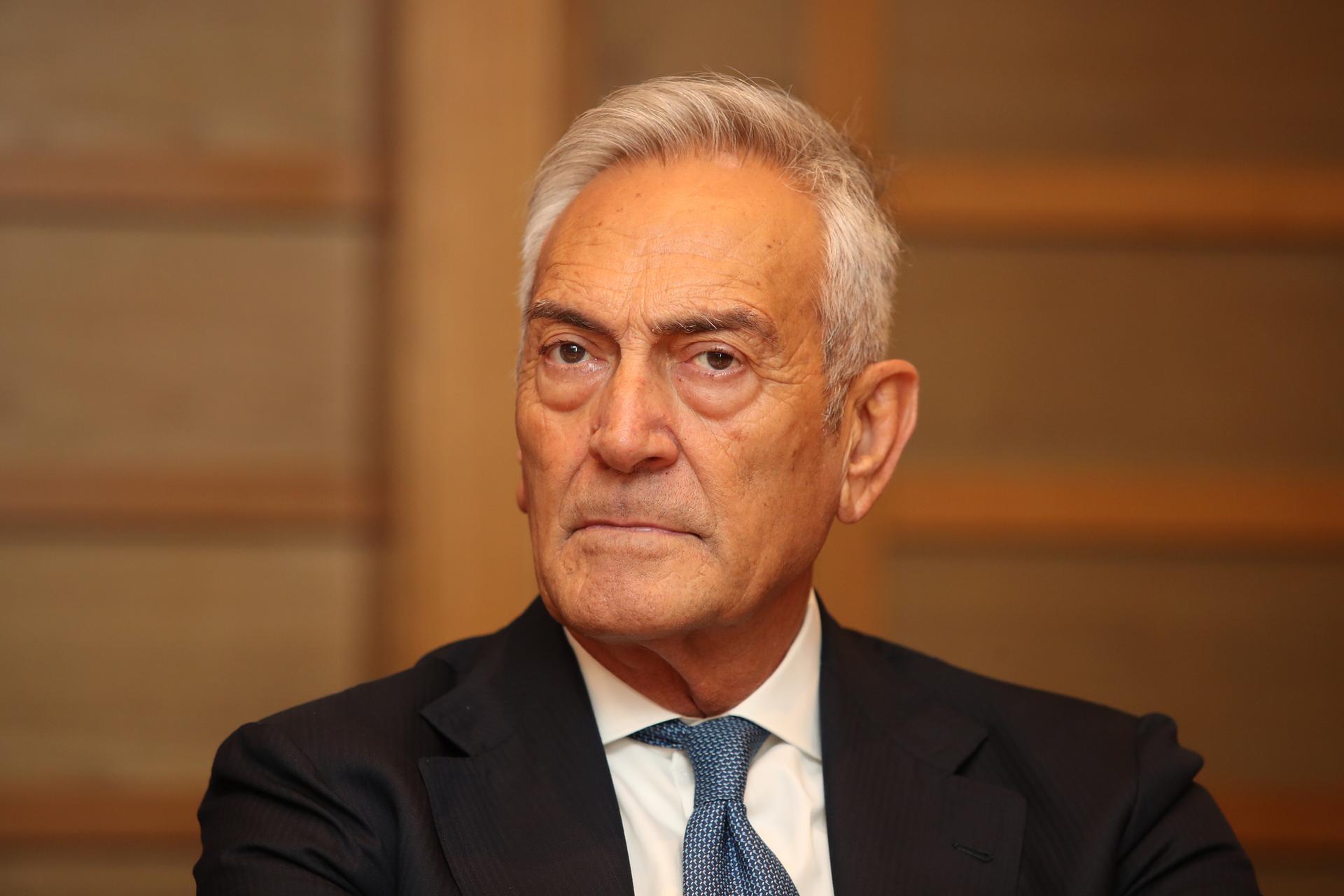PHOTO
The FIGC Federal Council met today, approving unanimously the 2025 Audit Planand the new UEFA Licensing Manual. The meeting also renewed the composition of both the Medical-Scientific Commission and the Examination Board for the special exam for sports agents. FIGC President Gabriele Gravina opened the session by welcoming Giulio Gallazzi, newly elected Federal Councillor representing Lega Pro, and two new members of the Board of Auditors, Gerardo Longobardi (appointed by CONI) and Massimo Colletti (appointed by ministerial decree on 26 September).
Gravina praised the signing of the new collective agreement between Lega Serie A and AIC, stressing that stronger collaboration between the various institutions is essential for the overall development of Italian football. He also informed the Council of the signing of the convention with the independent commission overseeing the financial balance of professional clubs (as per Article 13-bis of Decree Law 36/2021), which officially began its work on 1 October, marking the end of Covisoc’s operations. Gravina raised concerns over the legitimacy of requiring FIGC and clubs to fund the commission’s operations, a view unanimously shared by the Council.
“It’s hard to justify moving from an annual operating cost of €300,000 to a €3.5 million charge,” Gravina said during his post-meeting press conference. “That’s an anomaly. We haven’t made a final decision yet, but we’ll revisit the issue at the next Council meeting on 24 November. I can’t accept that such costs should burden a Federation already making major sacrifices to sustain activities that aren’t adequately supported. We’re in dialogue with the Minister to find a solution.”


A NATIONAL TEAM TRAINING CAMP. The Italian national team, led by Gennaro Gattuso, has made a perfect start: four wins from four and a play-off place secured after victories over Estonia and Israel.
“Gattuso has brought energy, character and belief back to the team,” said Gravina. “At Coverciano, everyone’s united under his leadership. We’re pursuing a long-term vision for Italian football, one that shouldn’t be overshadowed by a single result, such as the defeat to Norway.”
To ensure continuity ahead of potential play-offs, FIGC is exploring the idea of a training camp in February.
“It would be unrealistic to move a league matchday,” Gravina explained. “Given the congested schedule across Serie A, international competitions and the Coppa Italia, the best option would be a short training camp on 9 and 10 February. I’ve spoken with Serie A President Simonelli, and there’s openness to the idea.”
EURO 2032 STADIUMS. Gravina also addressed Italy’s stadium infrastructure ahead of UEFA EURO 2032. “San Siro is no longer suitable – it doesn’t meet the necessary standards,” he said. “However, there’s real progress in Rome. We recently met with Mayor Roberto Gualtieri and Roma’s ownership, who showed great commitment. I’m confident the city will have a second stadium ready for the tournament.”
AUDIT PLAN AND UEFA LICENSING MANUAL. The 2025 Audit Plan, developed with a risk-based approach and aligned with the 2024 Risk & Control Self-Assessment, was unanimously approved. The plan also includes compliance audits in line with Legislative Decree 231/2001.
The Council also approved the new UEFA Licensing Manual, updated to reflect the latest editions of the UEFA Club Licensing and Financial Sustainability Regulations and the UEFA Stadium Infrastructure Regulations.
Additionally, the Council endorsed amendments to Articles 28, 33, and 33-bis of the NOIF, concerning the regulation of Serie A youth players under apprenticeship contracts.
APPOINTMENTS. Secretary General Marco Brunelli thanked outgoing members of the Federal Guarantee Commission, Pasquale de Lise (President) and Cesare Mirabelli, for their service and professionalism after completing two consecutive terms. The process to appoint new members will begin shortly.
The Council named the new Examination Board for the Special Sports Agents Exam: Filippo Lattanzi (President), Alessandro Camilli, Paolo Marsilio, and Alessio Piscini (members).
The Federal Medical-Scientific Commission was also renewed, coordinated by Paolo Zeppilli, and including: Andrea Ferretti, Francesco Braconaro, Giuseppe Capua, Carmine Costabile, Francesco Cuccaro, Angelo De Carli, Walter Della Frera, Silvana Giannini, Gianni Nanni, Vincenzo Palmieri, Angelo Pizzi, Vincenzo Salini, Rodolfo Tavana, and Carlo Tranquilli.
Lastly, following the resignation of Vice-President Diana Bianchedi, Walter Della Frera was appointed to the Anti-Doping Commission.
